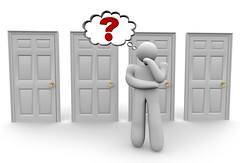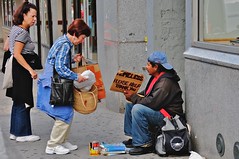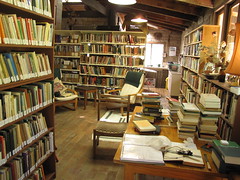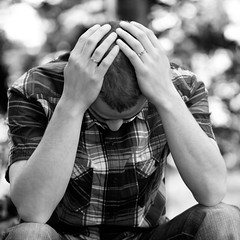| 6967457535 | Early Modern Land Empires | Manchus
Mughals
Ottomans
Russians | | 0 |
| 6967457536 | Early Modern Maritime (ocean) Empires | Portuguese
Spanish
Dutch
French
British | | 1 |
| 6967457537 | Renaissance | the revival of learning and culture | | 2 |
| 6967457538 | Importance of the Renaissance | P- rise of nation-states, absolutism
E- commercial revolution
R- Protestant and Catholic Reformation
S- growing middle class
I- printing press, scientific revolution
A- realism, perspective, humanism | | 3 |
| 6967457539 | Italian Renaissance | A new era of thought and feeling, by which Europe and its institutions were changed from their forms in the Middle Ages. 15th Century Italy is where the era rose from, and eventhough it pertained to high culture, the changes in literature, the arts, education, and morals spread across a whole area, influenced by the Italians. | | 4 |
| 6967457540 | Northern Renaissance | More concerned with theology and personal morality, Cultural and intellectual movement of northern Europe; began later than Italian Renaissance c. 1450; centered in France, Low Countries, England, and Germany; featured greater emphasis on religion than Italian Renaissance | | 5 |
| 6967457541 | Humanism | a Renaissance intellectual movement in which thinkers studied classical texts and focused on human potential and achievements | | 6 |
| 6967457542 | Protestant Reformation | Religious reform movement within the Latin Christian Church beginning in 1519. It spit the Roman Catholic Church and resulted in the 'protesters' forming several new Christian denominations, including the Lutheran, Calvinist, and Anglican Churches, among many others. |  | 7 |
| 6967457543 | Martin Luther | German theologian and leader of the Reformation. Wrote the Ninety-Five Theses. His opposition to the wealth and corruption of the papacy and his belief that salvation would be granted on the basis of faith alone rather than by works caused his excommunication from the Catholic Church (1521). Luther confirmed the Augsburg Confession in 1530, effectively establishing the Lutheran Church. |  | 8 |
| 6967457544 | Calvinism | Protestant sect founded by John Calvin. Emphasized a strong moral code and believed in predestination (the idea that God decided whether or not a person would be saved as soon as they were born). Calvinists supported constitutional representative government and the separation of church and state. | | 9 |
| 6967457545 | Catholic Reformation | 16th Century. Partly in response to the Protestant Reformation, Roman Catholic authorities undertook an enormous reform effort within their own church. To some extent their efforts represented a reaction to Protestant success. Roman Catholic authorities sought to define points of doctrine so as to clarify the differences between the Roman and Protestant churches. They also attempted to persuade the Protestants to return to the Catholic church. | | 10 |
| 6967457546 | Impact of the Reformation | 1. Protestantism w/ many sects, e.g. Calvinists, spread throughout Europe
2. religious wars erupted, Catholics v. Protestants, as Catholic rulers tried to force rebellious nobles back into the Church
3. Christian split was officially accepted - Peace of Augsburg (1555) - noble could decide religion of his state
4. English Reformation (1534) - King Henry VIII broke from the Church, creating a "Protestant" Church of England
4. common people taking on establishments, printing press, power of ideas being spread, control masses=power | | 11 |
| 6967457547 | Commerical Revolution | Increased availability of trade goods and new ways of doing business changed life in Europe beginning in the 15th century. Taken together, this expansion of trade and business is the commercial revolution. | | 12 |
| 6967457548 | Causes of commercial revolution | New ocean trade routes brought great wealth that supported increased investment and a wide array of new economic ventures. Dramatic growth of population, thanks to introduction of new foods, caused a steady rise in the overall demand for goods and services. The price revolution (steady inflation of prices) was caused by increased gold and silver. New nation centered economic system went from towns and guilds with very little innovation to increased commercial activity increased innovation and valued nation over towns and guilds | | 13 |
| 6967457549 | Scientific Revolution | A major change in European thought, starting in the mid-1500s, in which the study of the natural world began to be characterized by careful observation and the questioning of accepted beliefs | | 14 |
| 6967457550 | Copernicus | Polish astronomer who produced a workable model of the solar system with the sun in the center (1473-1543) |  | 15 |
| 6967457551 | Galileo | Italian astronomer and mathematician who was the first to use a telescope to study the stars |  | 16 |
| 6967457552 | Isaac Newton | English mathematician and scientist who invented differential calculus and formulated the theory of universal gravitation, a theory about the nature of light, and three laws of motion. His treatise on gravitation, presented in Principia Mathematica (1687), was supposedly inspired by the sight of a falling apple. |  | 17 |
| 6967457553 | Robert Boyle | An English physicist and chemist, this man discovered the nature of elements and compounds and the basis of modern chemistry. | | 18 |
| 6967457554 | Absolutism | a form of government, usually hereditary monarchy, in which the ruler has no legal limits on his or her power. | | 19 |
| 6967457555 | Louis XIV | The French King who built the palace at versailles, The longest standing King of France "Sun King",, One of the most powerful monarchs of Europe, ruling 72 years. He was famous for his quote,"I am the state." Moved capital to Versailles which became a symbol of power. |  | 20 |
| 6967457556 | limited monarchy | government led by a monarch whose powers were limited by a constitution, and who was required to consult Parliament | | 21 |
| 6967457557 | parliamentary monarchy | A limited monarchy where the monarch is subject to the law and the consent of parliament | | 22 |
| 6967457558 | Elizabeth I | Tudor Queen of England. Succeeded Mary I in 1558 and ruled until 1603. In addition to leading the defeat of the Spanish Armada and developing England into a world power, she strengthened Protestantism. Daughter of Henry VIII. |  | 23 |
| 6967457559 | mercantilism | An economic policy under which nations sought to increase their wealth and power by obtaining large amounts of gold and silver and by selling more goods than they bought | | 24 |
| 6967457560 | nation-state | a sovereign, geographically based state that identifies itself as having a distinctive national culture and historical experience | | 25 |
| 6967457561 | Prince Henry the Navigator | (1394-1460) Prince of Portugal who established an observatory and school of navigation at Sagres and directed voyages that spurred the growth of Portugal's colonial empire. | | 26 |
| 6967457562 | Vasco da Gama | Portuguese explorer. In 1497-1498 he led the first naval expedition from Europe to sail to India, opening an important commercial sea route. (p. 428) | | 27 |
| 6967457563 | Ferdinand Magellan | Portuguese navigator who led the Spanish expedition of 1519-1522 that was the first to sail around the world. | | 28 |
| 6967457564 | Dutch East India Company | Government-chartered joint-stock company that controlled the spice trade in the East Indies until the british came and took over | | 29 |
| 6967457565 | British East India Company | Created when the British began economic interest in India in the 1600's. They set up trading posts at Bombay, Madras, and Calcutta. They considered India as the most valuable of all of their colonies | | 30 |
| 6967457566 | Columbian Exchange | the movement of plants, animals, and diseases between the Eastern and Western hemispheres during the age of exploration | | 31 |
| 6967457567 | Impact of the Columbian Exchange | For Europeans: transfer of new products and ideas encouraged economic growth, population growth
For Native Americans: new diseases decimated population | | 32 |
| 6967457568 | Ivan the Terrible | Confirmed power of tsarist autocracy by attacking the authority of the boyars; continued policy of expansion; established contacts with western European commerce and culture. | | 33 |
| 6967457569 | cossaks | They were Ukranian peasants who lived between the border of Poland and Russia. They gave military service in return for territorial privileges. Their support was crucial in the Russian expansion of the 16th and 17th centuries. | | 34 |
| 6967457570 | Peter the Great | This was the czar of Russia that Westernized Russia and built up a massive Russian army. He also was interested in building grand cities like those in Western Europe |  | 35 |
| 6967457571 | Catherine the Great | German-born Russian tsarina in the 18th century; ruled after assassination of her husband; gave appearance of enlightened rule; accepted Western cultural influence; maintained nobility as service aristocracy by granting them new power over peasantry. |  | 36 |
| 6967457572 | Pugachev Rebellion | Pugachev, a Cossack soldier, led a huge serf uprising-demanded end to serfdom, taxes and army service; landlords and officials murdered all over southwestern Russia; eventually captured and executed | | 37 |
| 6967457573 | encomienda | Labor system created by Spain which allowed Spanish settlers in the Americas to control the lands AND people of a certain territory, in turn the Spanish had to pay the natives and teach them Catholicism. The system was intended to help the natives from exploitation, but the system itself turned into a coercive labor system. | | 38 |
| 6967457574 | Bartolome de las Casas | Dominican friar who supported peaceful conversion of Native American population; opposed forced labor and advocated Indian rights. | | 39 |
| 6967457575 | Hernando Cortez | Spanish conquistador who defeated the Aztecs and conquered Mexico (1485-1547) | | 40 |
| 6967457576 | Francisco Pizarro | Spanish explorer who conquered the Incas in what is now Peru and founded the city of Lima (1475-1541) | | 41 |
| 6967457577 | The discovery of ____ created great need for labor in Mexico and Peru. | silver | | 42 |
| 6967457578 | Treaty of Tordesillas | Set the Line of Demarcation which was a boundary established in 1493 to define Spanish and Portuguese possessions in the Americas. | | 43 |
| 6967457579 | Society of Castas | Social classes in the Spanish colonies based solely on race. | | 44 |
| 6967457580 | Gunpowder Empires | Muslim empires of the Ottomans, Safavids, and the Mughals that employed cannonry and gunpowder to advance their military causes. | | 45 |
| 6967457581 | Ottoman Empire | Islamic state founded by Osman in northwestern Anatolia. After the fall of the Byzantine Empire, the Ottoman Empire was based at Istanbul (formerly Constantinople) from 1453-1922. It encompassed lands in the Middle East, North Africa, the Caucasus, and eastern Europe. |  | 46 |
| 6967457582 | Mehmed (Mehmet) II | Ottoman sultan called the "Conqueror"; responsible for conquest of Constantinople in 1453; destroyed what remained of Byzantine Empire. | | 47 |
| 6967457583 | Janissaries | Infantry, originally of slave origin, armed with firearms and constituting the elite of the Ottoman army from the fifteenth century until the corps was abolished in 1826. | | 48 |
| 6967457584 | Ottoman decline | Factors: 1) Weak leaders after Suleyman. 2) Ottoman economy built on conquest and expansion; once this stopped, the economy couldn't adapt. 3) Bloated bureaucracy and corruption. 4) Reasons 2 and 3 led to increased taxation, feeding resentment. 5) Nationalist uprisings in Eastern Europe and Greece, fueled by number 4. 5) Complacency and lack of curiosity about outsiders. 6) Geographical position left Ottomans with little opportunity for overseas expansion
"Sick Man of Europe" 1700's-1800's. Falls during WWI, gives rise to Turkey 8) Limited Military flexibility (janissaries) 9) failure to modernize and keep up with western culture and industrialization | | 49 |
| 6967457585 | Safavid Empire | Shi'ite Muslim empire that ruled Persia from the 16th through 18th centuries.
Its diverse culture drew from Persian, Ottoman and Arab traditions. A great site of cultural blending; conquest and ongoing cultural interaction fueled the empire's development. | | 50 |
| 6967457586 | Abbas the Great | Safavid ruler from 1587 to 1629; extended Safavid domain to greatest extent; created slave regiments based on captured Russians, who monopolized firearms within Safavid armies; incorporated Western military technology. | | 51 |
| 6967457587 | Mughal Empire | One of the most successful empires of India, a state founded by Islamic Turks that invaded India in 1526; their rule was noted for their vacillating efforts to create partnerships between Hindus and Muslims | | 52 |
| 6967457588 | Babur | Turkic leader who founded Mughal dynasty; died in 1530. | | 53 |
| 6967457589 | Akbar | The most famous Muslim ruler of India during the period of Mughal rule. Famous for his religious tolerance, his investment in rich cultural feats, and the creation of a centralized governmental administration, which was not typical of ancient and post-classical India. | | 54 |
| 6967457590 | Shah Jahan | the fifth Mogul emperor of India. During his reign, from 1628 to 1658, the Mogul Empire reached its zenith in prosperity and luxury. He is remembered as the builder of the Taj Mahal. |  | 55 |
| 6967457591 | coercive labor system | an institution in which workers are compelled to work by force, intimidation, or authority, often against their will (ex. serfdom, slavery) | | 56 |
| 6967457592 | The ____ were the first to bring slaves from West Africa to Europe. | Portuguese | | 57 |
| 6967457593 | Why did African trade other Africans in to slavery? | They traded for guns from the Europeans | | 58 |
| 6967457594 | Most West Africans went to ____ plantations in the Caribbean and Brazil. | sugar | | 59 |
| 6967457595 | Women were taken mainly from _____ Africa and traded in the ______. | East
Middle East | | 60 |
| 6967457596 | Royal African Company | Chartered in Britain in the 1660s to establish a monopoly over the African trade; supplied slaves to British New World colonies. | | 61 |
| 6967457597 | triangular trade | A three way system of trade during 1600-1800s Africa sent slaves to America, America sent raw materials to Europe, and Europe sent guns and rum to Africa | | 62 |
| 6967457598 | Asante | African kingdom on the Gold Coast that expanded rapidly after 1680. Asante participated in the Atlantic economy, trading gold, slaves, and ivory. It resisted British imperial ambitions for a quarter century before being absorbed into Britain. 1902 (736) | | 63 |
| 6967457599 | Dahomey | (ca. 1650- 1894) African kingdom in present day southern Benin, reaching its height of influence in the eighteenth century. Its leaders sought regional power by raiding for slaves in other kingdoms and then selling the, for firearms and other European goods | | 64 |
| 6967457600 | Asian Sea Trading Network | Divided, from West to East, into three zones prior to the European arrival: an Arab zone based on glass, carpets, and tapestries; an Indian zone, with cotton textiles; and a Chinese zone, with paper, porcelain, and silks. | | 65 |
| 6967457601 | Impact of Atlantic slave trade | • Africans made rich through guns and
gold in exchange for slaves
• Conflicts within Africa resulted and new
political alliances formed
encouraged African warfare
destroyed African culture
introduced new goods and ideas to Africa
Africa is underdeveloped, as the new world becomes modern and developed
brought wealth to merchants and traders and provided labor that profited and caused economies to grow | | 66 |
| 6967457602 | Calicut | A city of southwest India on the Malabar Coast southwest of Bangalore. It was the site of Vasco da Gama's first landfall in India (1498) and was later occupied by Portuguese, British, French, and Danish trading colonies | | 67 |
| 6967457603 | Batavia | Fort established ca. 1619 as headquarters of Dutch East India Company operations in Indonesia; today the city of Jakarta. | | 68 |
| 6967457604 | Ming China | China was in bad condition after Mongol invasions. Chinese attempted to hide evidence of foreign rule and taught many Confucian ideas. Government was highly centralized and maritime voyages were extremely prominent. | | 69 |
| 6967457605 | Hongwu | first Ming emperor (1368-1403); drove out the Mongols and restored the position of the scholar-gentry. | | 70 |
| 6967457606 | scholar-gentry | in China, a group of people who controlled much of the land and produced most of the candidates for the civil service | | 71 |
| 6967457607 | Zheng He | Chinese admiral who led seven overseas trade expeditions under Ming emperor Yunglo between 1405 and 1423; demonstrated that the Chinese were capable of major ocean exploration. |  | 72 |
| 6967457608 | Ming decline | 1368-1644. Weak rulers took throne, corruption increased under their rule. Pirates. Defense efforts drained treasury; rulers raised taxes. High taxes, crop failures led to famine, hardship; rebellions broke out. | | 73 |
| 6967457609 | Manchus | Northeast Asian peoples who defeated the Ming Dynasty and founded the Qing Dynasty in 1644, which was the last of China's imperial dynasties. | | 74 |
| 6967457610 | Toyotomi Hideyoshi | The predecessor of Tokugawa; succeeded Nobunaga Oda and laid the foundations of the Tokugawa shogunate | | 75 |
| 6967457611 | Tokugawa Ieyasu | Vassal of Toyotomi Hideyoshi; succeeded him as most powerful military figure in Japan; granted title of shogun in 1603 and established Tokugawa Shogunate; established political unity in Japan |  | 76 |
| 6967457612 | Tokugawa Shogunate | Japanese ruling dynasty that strove to isolate it from foreign influences. shogunate started by Tokugawa Leyasu; 4 class system, warriors, farmers, artisans, merchants; Japan's ports were closed off; wanted to create their own culture; illegal to fight; merchants became rich because domestic trade flourished (because fighting was illegal); had new forms of art - kabuki and geishas | | 77 |
| 6967457613 | Reasons for European exploration | desire for wealth, to spread Christianity, desire for land, new sailing technology, God, gold, and glory | | 78 |
| 6967457614 | Thirty Years' War | (1618-48) A series of European wars that were partially a Catholic-Protestant religious conflict. It was primarily a batlte between France and their rivals the Hapsburg's, rulers of the Holy Roman Empire. | | 79 |
| 6967457615 | Council of Trent | Called by Pope Paul III to reform the church and secure reconciliation with the Protestants. Lutherans and Calvinists did not attend. | | 80 |
| 6967457616 | Cardinal Richelieu | (1585-1642) French Cardinal and politician responsible for instituting absolutist practices in France. | | 81 |
| 6967457617 | Kongo | Central African state that began trading with the Portuguese around 1500; although their kings, such as King Affonso I (r. 1506-1543), converted to Christianity, they nevertheless suffered from the slave trade. | | 82 |
| 6967457618 | Great Zimbabwe | City, now in ruins (in the modern African country of Zimbabwe), whose many stone structures were built between about 1250 and 1450, when it was a trading center and the capital of a large state. (p. 385) | | 83 |
| 6967457619 | Timbuktu | City on the Niger River in the modern country of Mali. It was founded by the Tuareg as a seasonal camp sometime after 1000. As part of the Mali empire, Timbuktu became a major major terminus of the trans-Saharan trade and a center of Islamic learning (388 | | 84 |
| 6967457620 | bakufu | Military "tent" government established by the Minamoto following the Gempei Wars; centered at Kamakura; retained emperor, but real power resided in military government and samurai | | 85 |
| 6967457621 | daimyo | A Japanese feudal lord who commanded a private army of samurai; warlord but not as powerful as a shogun. | | 86 |
| 6967457622 | Sikhism | A belief system which blends Hindu traditions with Islamic monotheistic traditions. Based in India and Pakistan. | | 87 |
| 6967457623 | jizya | tax paid by Christians and Jews who lived in Muslim communities to allow them to continue to practice their own religion | | 88 |
| 6967457624 | Ishfahan | The Capital of Persia known for it urban and cultural development. | | 89 |
| 6967457625 | Decline of the Islamic Empires | ethnic differences in the ever-expanding empire; internal conflict between Sunni and Shiites; mamluk (Turkish slaves) revolts; external foes: the Persians, Europeans, and Byzantines; Mongol invasion in 1258 destroying Baghdad | | 90 |
| 6967457626 | QIng Dynasty | (1644-1911 CE), the last imperial dynasty of China which was overthrown by revolutionaries; was ruled by the Manchu people: began to isolate themselves from Western culture, | | 91 |























































































